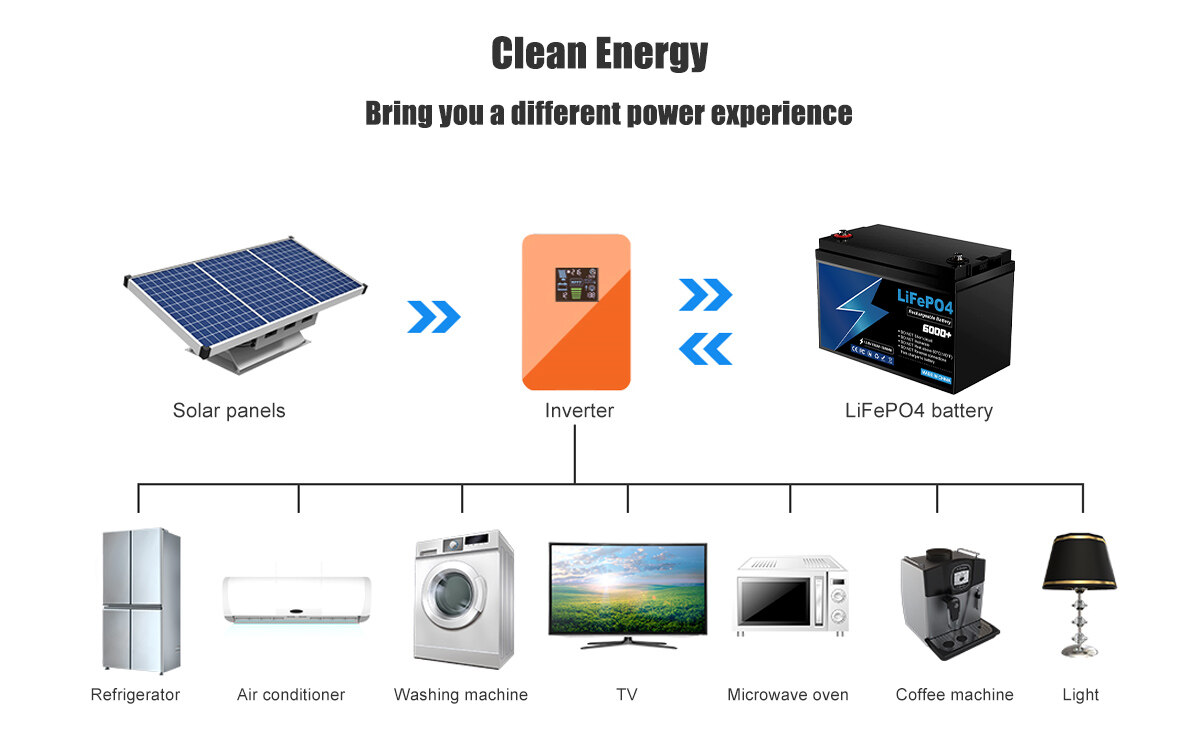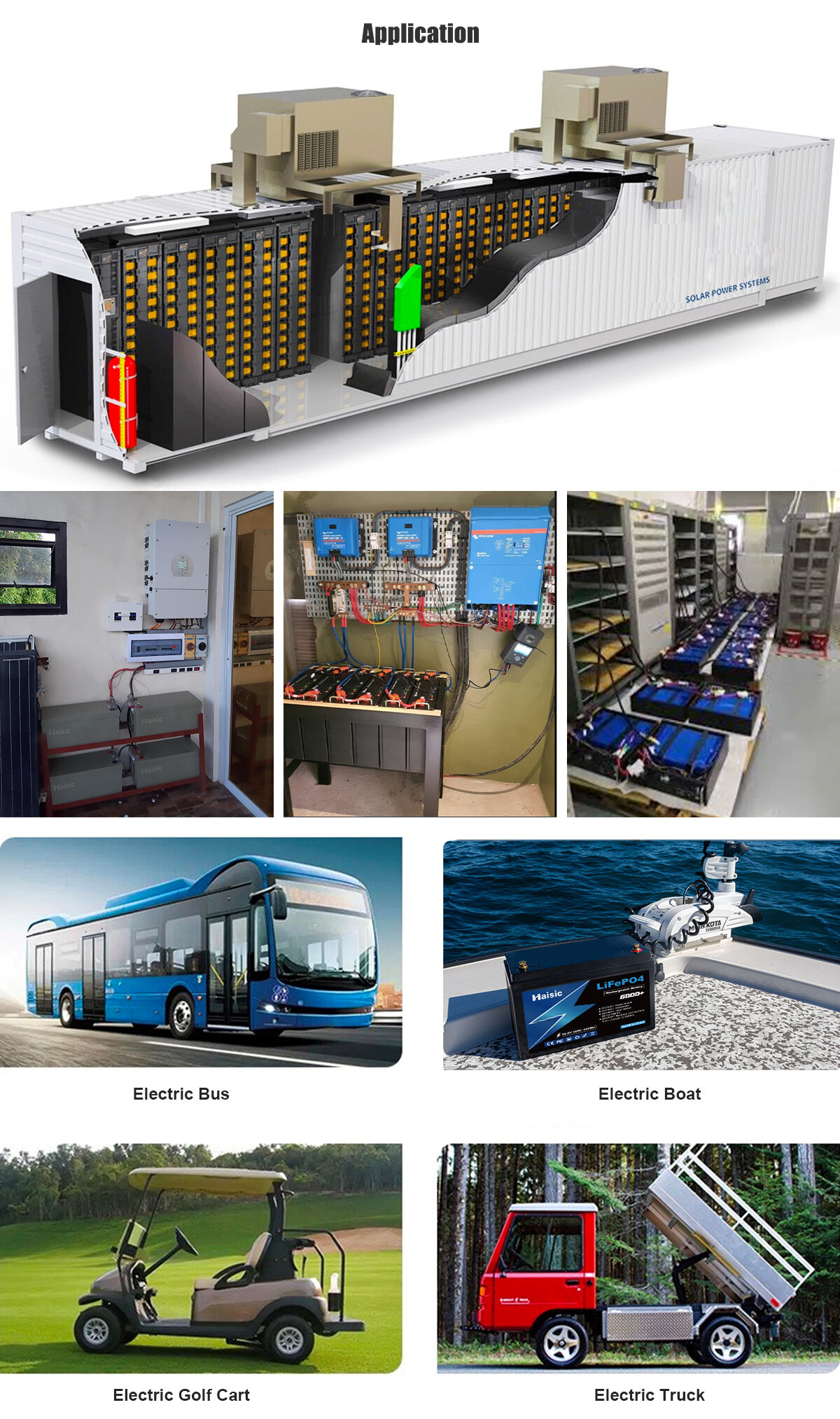Email format error
Email cannot be empty
Email already exists
6-20 characters(letters plus numbers only)
The password is inconsistent
Email format error
Email cannot be empty
Email does not exist
6-20 characters(letters plus numbers only)
The password is inconsistent

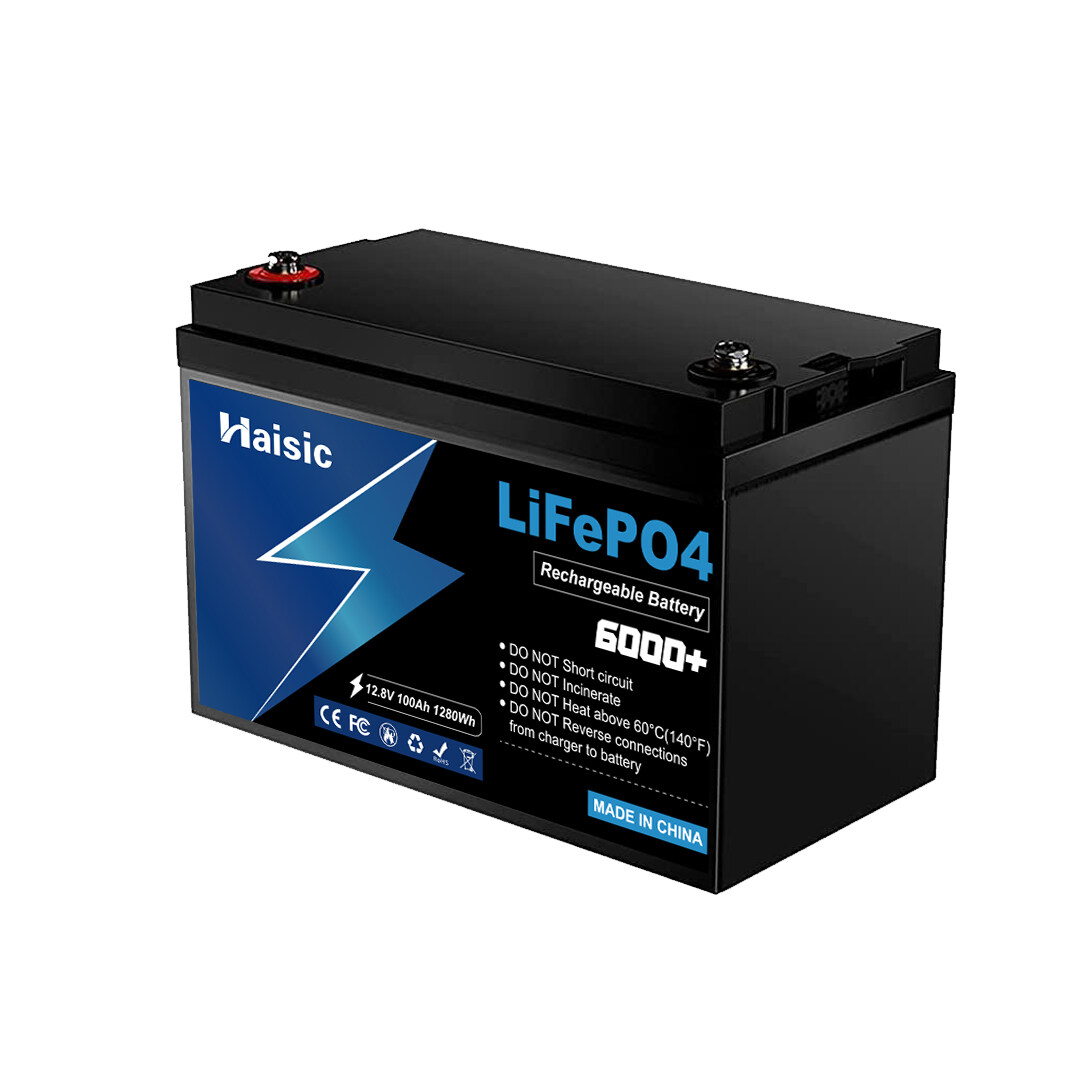
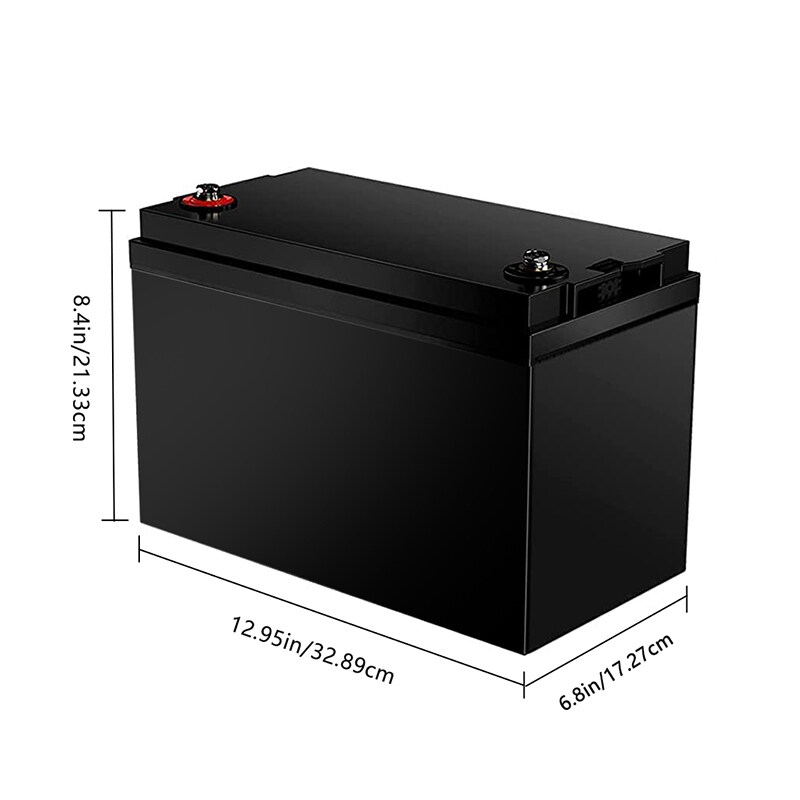
The amount of energy stored in a given space is described by energy density. This appears to be a disadvantage when compared to Lithium batteries, as it implies that LiFePO4 batteries must be slightly larger to hold the same amount of energy as standard Lithium-ion batteries. However, in most cases, the extra storage space is well worth it. The lower the cell density, the less volatile the cell.
Why are lithium-iron phosphate batteries especially suitable for home energy storage systems?
1. Efficiency and full cycle capacity
Lithium iron phosphate batteries can be charged at constant current and constant voltage and can be quickly charged and put back into service when needed. LifePO4 can also discharge 100% and maintain high voltage levels. For these reasons, LifePO4 batteries are now used in robotics, home energy storage, hybrid generators, and truck APU systems.
2. Low energy density
Energy density is a description of how much energy is stored in a given space. This seems to be a disadvantage compared to Lithium batteries, as it means LiFePO4 batteries have to be slightly larger to hold the same amount of energy as regular Lithium-ion batteries. But in most cases, the little extra storage required is well worth it. The lower cell density makes the cell less volatile.
3. Battery life
The life cycle of lithium iron phosphate batteries is two to four times that of lithium-ion batteries. This is partly because the lithium iron phosphate options are more stable at high temperatures, so they can withstand overcharging. In addition, lithium iron phosphate batteries can be stored for longer periods without degrading.
Longer shelf life is helpful in solar situations, where these setups are designed to provide a home or business with years of backup power. Longer shelf life means less money for homeowners and less chance of a battery dying at the wrong time.
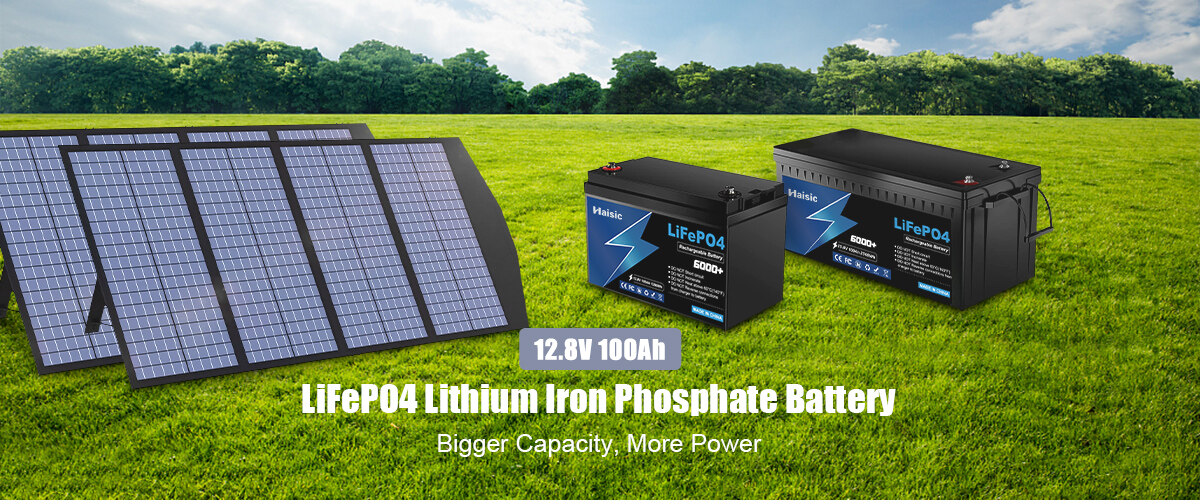
Product parameters
| Model | HS-12.8V100Ah |
|---|---|
| Application area | Outdoor and indoor UPS and battery back up systems; Portable and cordless household appliances; Medical equipment; Motorcycles, toy cars; Camping trailers, RVs, etc. Lighting equipment, emergency lights, etc. And many other applications |
| Cell Type | LiFePO4 |
| Volt | 12.8V |
| Capacity | 100Ah |
| Charge Voltage | 14.6V |
| Maximum Continuous Charging | 100A |
| Maximum Continuous Discharge Current | 100A |
| Weight | 10.82KG |
| Size | 329*173*214mm |
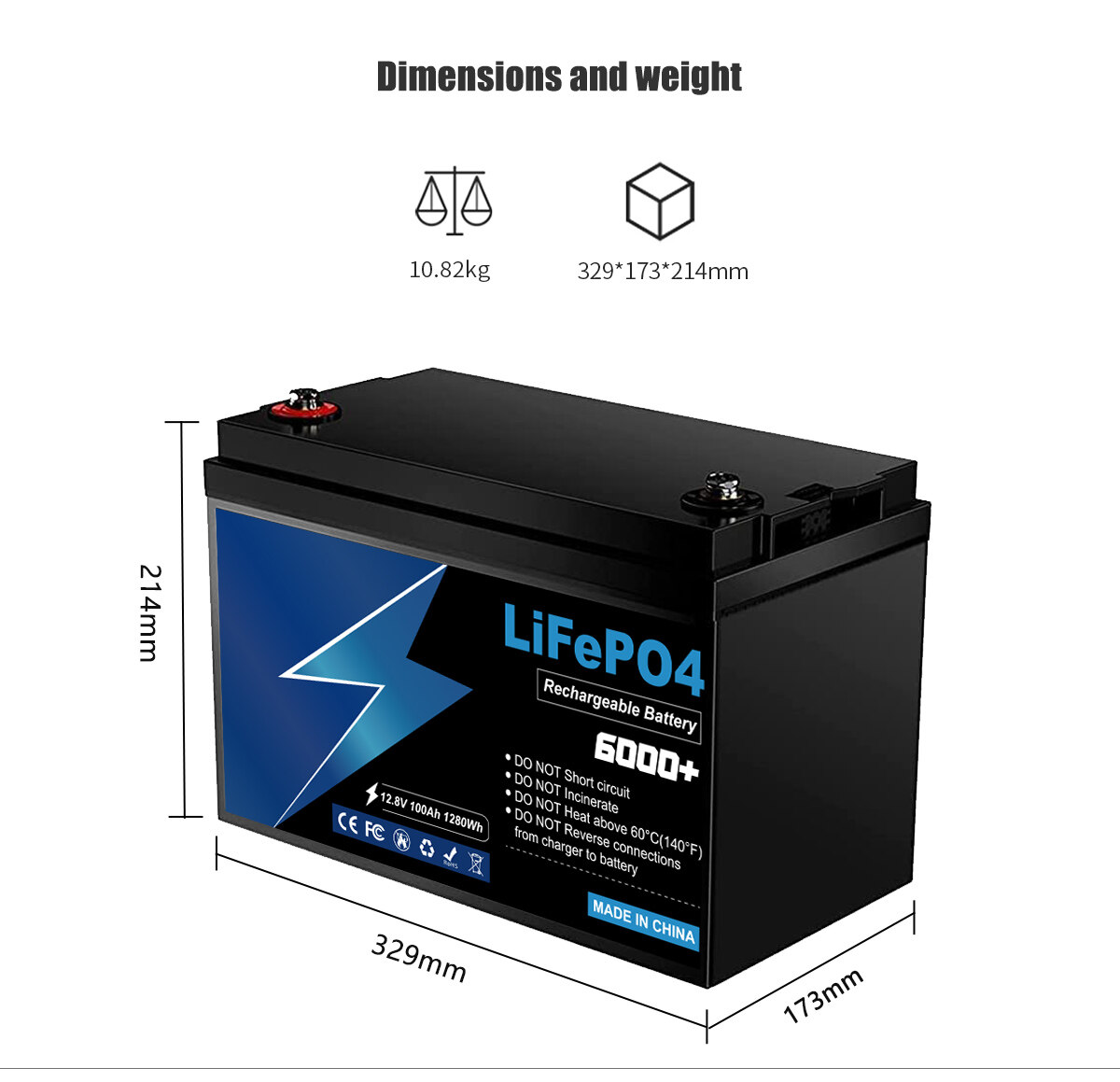
4. Environmentally friendly
While basic lithium-ion batteries contain hazardous materials and are difficult to dispose of responsibly, lithium-iron phosphate batteries are not considered toxic. They contain common and readily available materials such as iron, graphite, and copper. This makes them easier to recycle and can even be reused as new batteries. The longer the life of a lithium iron phosphate battery, the better it is for the planet. Manufacturing new batteries require energy and resources, so the longer they are used, the lower the overall carbon footprint.
Lithium iron phosphate batteries have higher safety, longer service life, and environmental advantages, making them ideal for the solar industry. Consumers will no doubt be happy with this alternative to other battery options on the market.
5. Working temperature
Lithium Iron Phosphate batteries operate at or near capacity in a temperature range of -40 degrees Fahrenheit to 158 degrees Fahrenheit.
This single feature makes the LifePO4 battery ideal for remote monitoring equipment in the Arctic and sub-Saharan regions. They are used in weather monitoring equipment, marine buoys, and oil, and gas pipeline equipment in all climates around the world.
6. Easy to store
The extremely low self-discharge rate makes storage of LFP batteries easy, even for longer periods. Lithium-ion batteries are fine for a year, as long as they have a little charge in them before storing. A value between 50% and 60% is ideal, this will allow the battery to self-discharge over a long period and bring the voltage close to a dangerous point.
Storing batteries below freezing is no problem, even at -40 degrees Celsius (same for Fahrenheit) or even lower! The electrolyte in LiFePO4 batteries does not contain any moisture, so even when frozen (which happens around -40 degrees Celsius, depending on the exact recipe), it does not swell and damages the battery.
7. Depth of discharge
The deep discharge capability of lithium iron phosphate batteries protects them from damage due to excessive energy consumption in the battery. LiFePO4 batteries can be fully discharged without affecting the delivery capacity. This advantage makes lithium-iron phosphate batteries ideal for solar devices because multiple cells can be connected to increase storage capacity. The battery can then be discharged at different rates without causing any damage.
